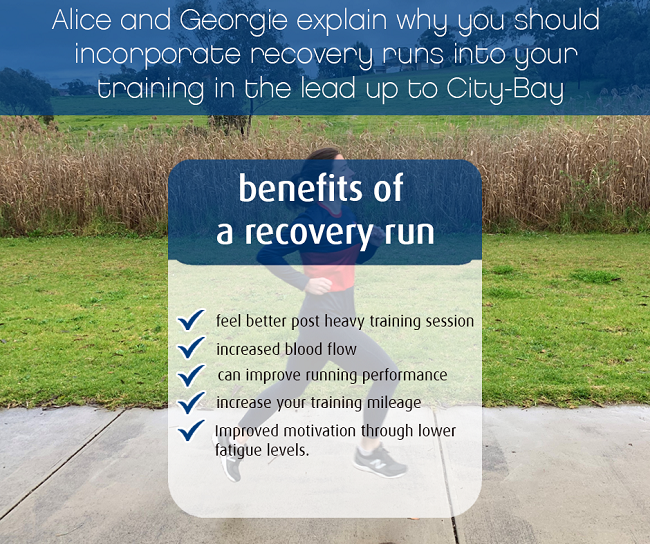Although the City-Bay has been postponed to a later date it allows you to further improve your trial times and even include a new element to your training! Our Exercise Physiologists, Alice Gregory and Georgina Kiel share some insight into the incorporation of recovery runs into our training and how this will benefit our overall performance!
What are recovery runs?
A recovery run is a low intensity run usually performed after a higher intensity run or training session. Recovery runs can help to increase your training mileage (how far you run each week) without the stress that comes from running at higher intensities, i.e. faster paced runs. This is important in order to keep you training consistently. If all your runs are hard and fast, it will be much harder to train consistently, compared to doing some runs hard and most runs easy. The best distance runners in the world do most of their training at low intensities.
80/20 rule
A popular training philosophy is the 80/20 rule which describes performing at least 80% of your weekly running at low intensity and up to 20% at high intensity. Following the 80/20 rule makes it easier to sustain consistent training each week. A runner who trains consistently each week and includes more easy running than hard running is more likely to be successful than a runner who performs most of their running at a high intensity, who will likely end up fatigued and may lose their motivation to continue training.
What are the benefits of recovery runs?
Increasing blood flow to fatigued muscles coupled with a ‘feel-good’ endorphin release may help you feel better post heavy training session or long run. Remember, recovery runs will add volume to your training week so make sure you’re not getting too keen too early and putting yourself at risk of overuse injuries! Performing a good warm up and cool down pre and post training session, sleeping well and light mobility may be just as beneficial!
What percentage of my weekly training runs should be at a recovery pace?
The percentage of weekly runs that should be recovery runs will depend on your training schedule and performance goals. An allied health professional or running specialist will be able to help you decide if a recovery run is suitable for you.
Alice and Georgie are available for exercise physiology consultations at our Stepney, Blackwood and Morphett Vale clinics. Please phone to get in touch or email physio@sportsmed.com.



